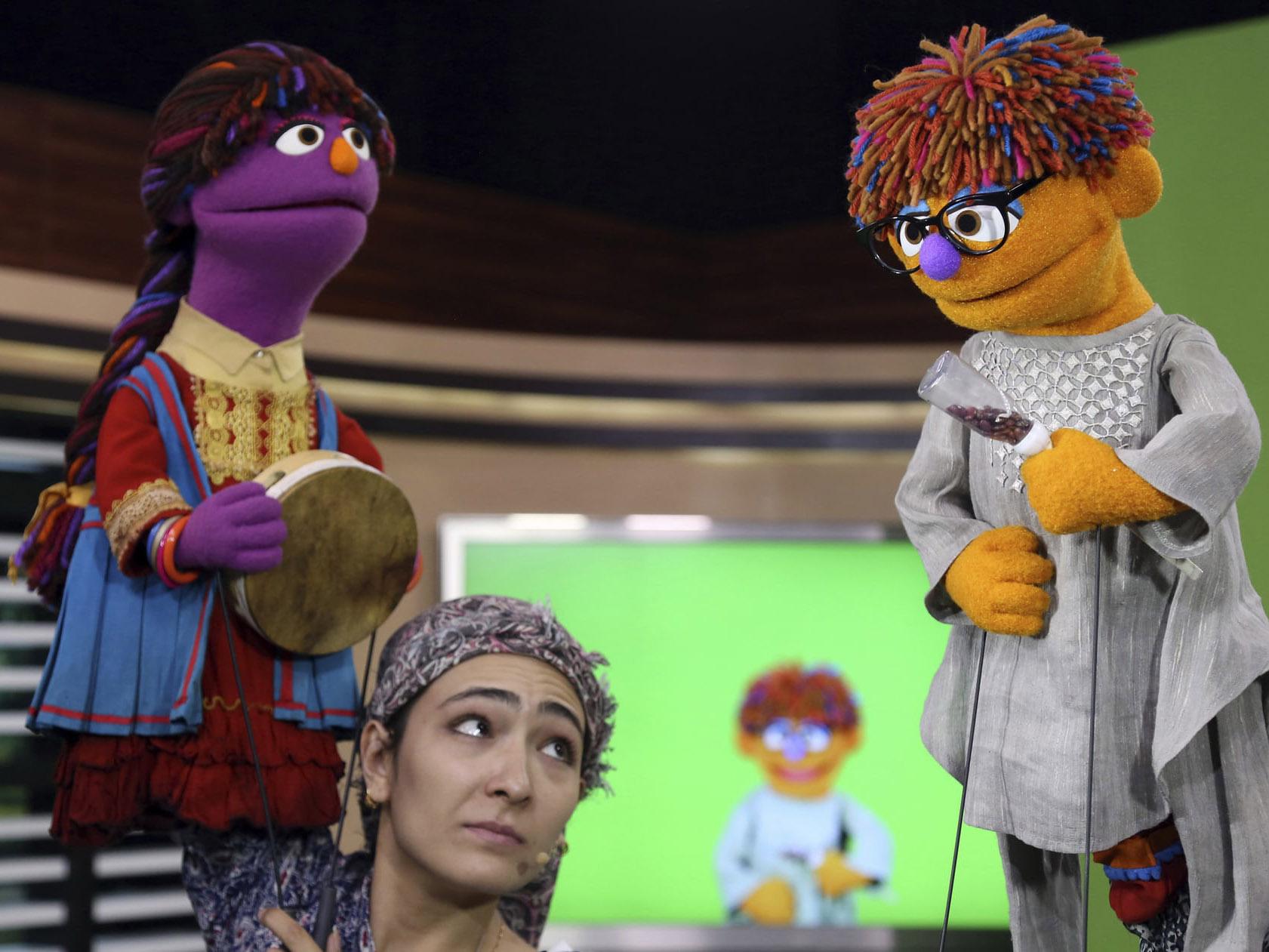Afghan Sesame Street introduces new puppet to teach respect for women
Boy named Zeerak ('Smart') follows sister character Zari onto Baghch-e-Simsim as show looks to inspire young female viewers

Your support helps us to tell the story
From reproductive rights to climate change to Big Tech, The Independent is on the ground when the story is developing. Whether it's investigating the financials of Elon Musk's pro-Trump PAC or producing our latest documentary, 'The A Word', which shines a light on the American women fighting for reproductive rights, we know how important it is to parse out the facts from the messaging.
At such a critical moment in US history, we need reporters on the ground. Your donation allows us to keep sending journalists to speak to both sides of the story.
The Independent is trusted by Americans across the entire political spectrum. And unlike many other quality news outlets, we choose not to lock Americans out of our reporting and analysis with paywalls. We believe quality journalism should be available to everyone, paid for by those who can afford it.
Your support makes all the difference.Last year, Afghanistan’s version of Sesame Street introduced a young, female character aimed at inspiring girls in the deeply conservative Muslim nation. Now a new puppet is joining the cast: her brother, who will show boys the importance of respecting women.
Zeerak, whose name means Smart in Afghanistan’s two official languages, is a four-year-old boy who enjoys studying and learning. He joins his six-year-old sister Zari, whose name means Shimmering, on Afghanistan’s version of the show, Baghch-e-Simsim (Sesame Garden).
Both muppets wear traditional Afghan clothing – baggy trousers and a long embroidered shirt known as a shalwar kameez for Zeerak, and colourful native dresses and a cream-coloured hijab for Zari. They join the rest of the show’s multicultural line-up, which includes puppets specially created for local versions of the program in Bangladesh, Egypt and India.
The head of Tolo TV, which broadcasts the program in Afghanistan, said that after the overwhelmingly positive response to Zari from both parents and children, the goal was to create a boy character to emphasise the importance of gender equality and education in a country where the vast majority of girls don’t go to school and the literacy rate for women is among the lowest in the world.
“In a male-dominant country like Afghanistan, I think you have to do some lessons for the males to respect the females. So by bringing a male character to the show who respects a female character, you teach the Afghan men that you have to respect your sister the same way as you do your brother,” they said.
In keeping with that goal, Zeerak proclaimed in a recent episode of the program, “I love Zari so much and as much as I love Zari, I love her friends too.”
It’s an important message broadcast on a medium with a nationwide reach: while television in Afghanistan is largely restricted to urban areas, Sesame Garden is also broadcast on radio in both official languages, Pashtun and Dari, expanding its audience to most of the country.
Both Zari and Zeerak were created in New York and their costumes incorporate fabrics and designs from all of Afghanistan’s major ethnic groups to promote inclusiveness in a society racked by decades of conflict.
Afghanistan has been at war for almost 40 years, since the 1979 Soviet invasion and the subsequent mujahedeen war that lasted a decade. That was followed by a devastating civil war in which warlords drew lines based on ethnicity and killed tens of thousands of people in Kabul alone.
The Taliban took over in 1996, and their five-year rule was one of brutal extremism in which they banned women from work and girls from going to school, confining them to their homes. The radical Taliban regime was forced from power by the 2001 US invasion that ushered in a democratic experiment and billions of dollars in international aid to help rebuild the country.
The producer of Baghch-e-Simsim said he was hopeful that the new characters will eventually have a wider audience outside of Afghanistan.
“Possibly, in the coming years other Muslim countries, which are running this program, might use our characters, such as Zeerak and Zari. They might use our scripts, translate them in their own languages and use them in their countries,” he said.
Associated Press
Join our commenting forum
Join thought-provoking conversations, follow other Independent readers and see their replies
Comments